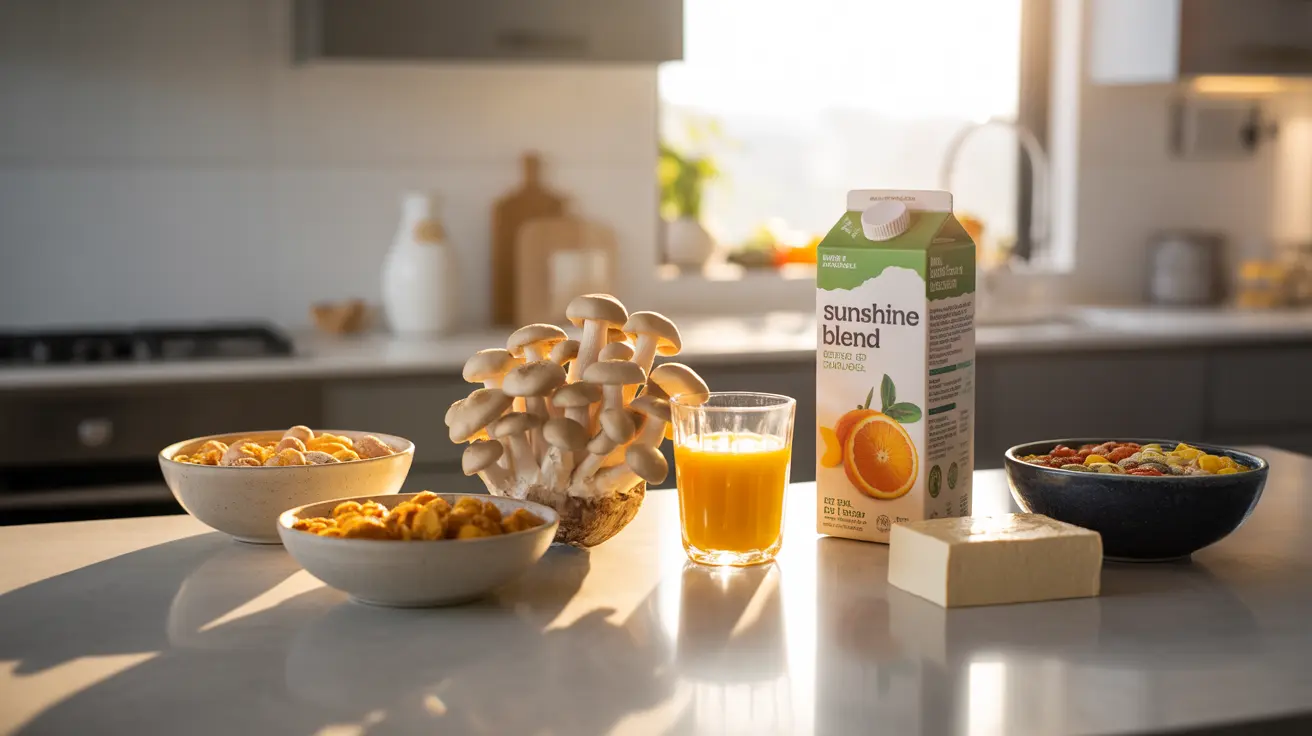Following a vegetarian diet brings many health benefits, but getting adequate vitamin D can be challenging since many natural sources come from animal products. Understanding how to obtain sufficient vitamin D through vegetarian-friendly sources is crucial for maintaining optimal health and preventing deficiency.
This comprehensive guide explores the best vegetarian sources of vitamin D, from food choices to safe sun exposure, helping you ensure you meet your daily requirements while following a plant-based lifestyle.
Natural Vegetarian Sources of Vitamin D
While vitamin D options may seem limited for vegetarians, several natural sources can help meet your needs:
Mushrooms
Mushrooms exposed to UV light are one of the few natural plant sources of vitamin D. Varieties like shiitake, portobello, and maitake can provide significant amounts, especially when sun-dried or UV-treated.
Fortified Foods
Many vegetarian-friendly foods are fortified with vitamin D, including:
- Plant-based milk alternatives (soy, almond, oat)
- Breakfast cereals
- Orange juice
- Tofu (some varieties)
- Yogurt alternatives
Sunlight Exposure and Vitamin D Production
The body naturally produces vitamin D when skin is exposed to sunlight. For optimal vitamin D synthesis:
- Aim for 10-30 minutes of sun exposure 2-3 times per week
- Expose arms, legs, or back when possible
- Best times are between 10 AM and 3 PM
- Consider your geographical location and season
Supplementation Guidelines for Vegetarians
In many cases, vegetarians may need to consider vitamin D supplementation, especially during:
- Winter months
- Limited sun exposure
- Living in northern latitudes
- Having darker skin
- Being over 50 years old
Choosing the Right Supplement
When selecting a vitamin D supplement, look for:
- D2 (ergocalciferol) - plant-based form
- Verified vegan certification
- Third-party testing
- Appropriate dosage (typically 600-800 IU daily for adults)
Monitoring Vitamin D Status
Regular monitoring of vitamin D levels through blood tests can help ensure you're meeting your needs. Watch for common signs of deficiency, including:
- Fatigue
- Bone pain
- Muscle weakness
- Mood changes
- Frequent infections
Frequently Asked Questions
What are the best vegetarian food sources of vitamin D to help meet daily needs?
The best vegetarian sources include UV-exposed mushrooms, fortified plant milk, fortified cereals, fortified orange juice, and some fortified tofu products. Combining these foods with safe sun exposure can help meet daily requirements.
How much sun exposure do vegetarians need to produce enough vitamin D safely?
Most people need 10-30 minutes of midday sun exposure 2-3 times per week, with arms, legs, or back exposed. The exact time needed varies based on skin tone, latitude, season, and time of day.
Can fortified plant-based foods provide enough vitamin D for vegetarians?
While fortified foods can contribute significantly to vitamin D intake, they alone may not provide sufficient amounts. A combination of fortified foods, sun exposure, and possibly supplements is often necessary to meet daily requirements.
When should a vegetarian consider taking vitamin D supplements?
Vegetarians should consider supplementation if they have limited sun exposure, live in northern latitudes, have darker skin, are over 50, or blood tests show low vitamin D levels. It's advisable to consult a healthcare provider before starting supplementation.
What are the common signs of vitamin D deficiency in vegetarians?
Common signs include persistent fatigue, bone and muscle pain, frequent illness, depression, slow wound healing, and bone loss. If you experience these symptoms, consult a healthcare provider for proper testing and treatment.




